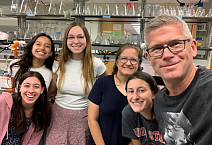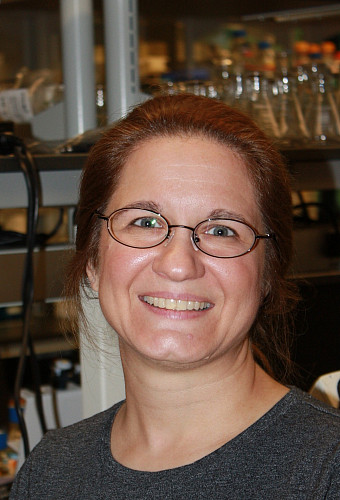Christina Kelly
Research Associate
Dr. Christina Kelly is a research associate in the lab of Dr. Dale Cameron. Dr. Kelly earned her PhD in Cellular and Molecular Biology from the University of Pennsylvania where she utilized zebrafish to investigate early patterning events during vertebrate embryonic development. Following a hiatus from the lab to raise her family, she joined the department in 2016 and is now studying yeast prions and supporting Ursinus students who are conducting research in Dr. Cameron’s lab.
Background
B.S., Case Western Reserve University
Ph.D., University of Pennsylvania




